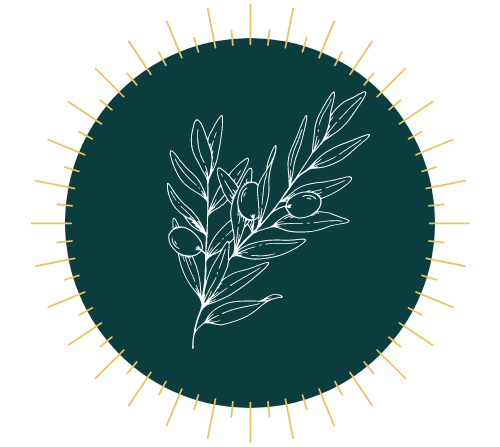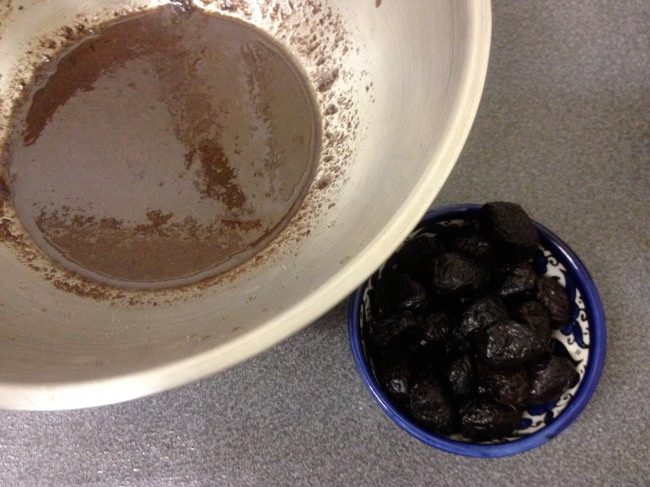I spoke about Moroccan Savon noir in a previous post, and since it seemed fairly easy to make at home I decided to have a go. In the UK, it is quite hard to find Savon noir, and some brands are not completely natural, adding chemicals or using bad quality ingredients. I felt it would be easier and safer to just make my own.
I also had a bag of dried black olives from Morocco that had been sitting in my cupboard for a while, and they seemed perfect for my recipe! I also got a litre of pure olive oil from a local deli shop, and ordered some caustic potash flakes online. This is my first time making soap with potash, as I usually use sodium hydroxide. Potash is used to make liquid soaps such as Castile soap, and it is a very ancient technique: people used to make soap using ashes from their stove, and the word ‘potash’ actually comes from ‘pot-ashes’. Using this technique has obliged me to research the history of soap-making, which is really more interesting than it sounds!
Here is an interesting page if you want to learn more.
Here is my Moroccan Black soap recipe:
I found using potash less straight-forward than using sodium, and it took longer. The texture is very different and I was a bit confused by it. I took inspiration from this recipe from a French website, which states to use 1/3 of the weight of the oil for olives, so I used 100g of olive oil for 33g of black olives, and then mixed everything together into a smooth paste. That’s how it looked like:
I then added the lye (18.6g of potash flakes to which I added 30mL of water, to get 2% excess fat). I then mixed together with a hand mixer until I reached the ‘trace’ stage, which looks like a custard. This part took ages, so I only used the mixer for a few minutes, then let it rest for a bit before starting again. I then placed my bowl on top of a pan of boiling water and let it until it turned into a paste, turning every once in a while.
Once it has cooled down, you can add water or an infusion to get to the right consistency. I added a few spoons of Orange blossom water to keep in with the Moroccan theme, and drops of Tea tree oil. This is my end result, the consistency is quite creamy: 
After letting it rest for a week, I have started using it on my skin (avoid the face though). It is definitely good for exfoliation, and it leaves my skin soft and moisturized, but it is quite ‘muddy’ in terms of colour and texture so it feels a bit strange! I think I will try again soon inshallah, using less black olives this time. I found this other recipe which only asks for 1/5 of the weight of the oil as black olives, so that seems a good idea. I hope this recipe is clear enough, please do not hesistate to ask more questions.
Stay blessed!




